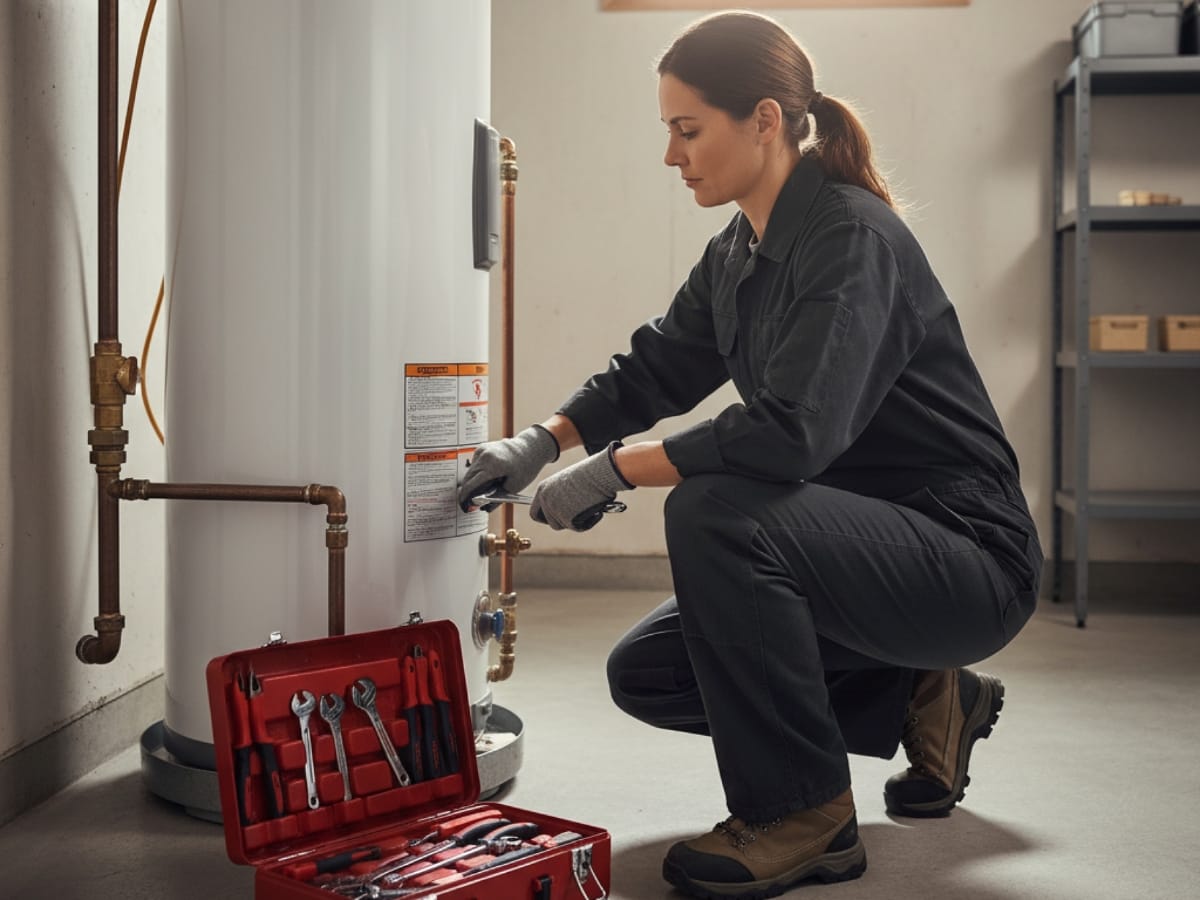If you run a central air conditioner, we’ve all dealt with maintenance issues over the years. From dirty filters to hot air, caring for the AC is a year-round task. Suddenly, the AC starts to smell different. Something isn’t quite right. Take a look at the top 3 reasons why your air conditioner smells musty and how to fix it.
1. Damaged AC Components That Cause Musty Odors
One of the most common reasons why your air conditioner smells musty is damaged parts. For example, most AC units also have a furnace component for the cooler months of the year. We know that many households use natural gas as their heating fuel. A damaged line within this area will produce an unusual scent.
If you smell sulfur, turn off the AC unit and contact our expert team. The gas line’s fumes are entering the AC’s blower or air handler, which vents it to the rest of the home. Any gas leak must be addressed as soon as possible.
A strange scent that’s reminiscent of gun powder is usually caused by a broken circuit board or fan. The circuitry produces these fumes when they heat up past their normal levels. Replacing the parts will stop the fumes throughout the house.
2. Microbe Growth
The AC’s interior parts can hold a lot of dust. Within the dust are tiny particles of mold and mildew. They can proliferate and end up airborne. You’re left with a musty smell.
These microbes can smell like dirty socks. They’re related because dirty-sock scents originate from these same microbes. In fact, the professionals refer to the musty smell as the dirty sock syndrome.
It’s not just the dust on the AC parts, such as the evaporator coil, that can be the preferred habitat either. Microbes might grow in the drainage pans or lines. Areas where moisture doesn’t move very steadily are perfect for microbe growth.
A professional may need to step in to find the dirty sock syndrome. Regular cleaning by both the professional and residents can ward off this scenario.
3. Crossed Connections
Another reason why your air conditioner smells musty is crossed connections. We all know that the home’s plumbing must vent the fumes away from the interior. These vents are often hidden away from residents’ views, but they’re noticeable if there’s a problem. In fact, the musty smell might be more akin to a sewer scent.
A malfunctioning plumbing vent might let fumes into the AC’s air handler. Although there’s a filter for particulates moving through the AC system, it cannot block sewer smells.
When we identify this crossed connection, it must be repaired as soon as possible. Breathing in the fumes isn’t healthy. The sewer contains even more microbes than dirty sock syndrome. A plumber and HVAC professional must find the vent, repair it and test the air handler.
Contact your local Atlanta HVAC professional today. A yearly inspection is a clever way to keep up with its maintenance. When we work together, we can prolong the AC’s lifespan without those musty smells.







